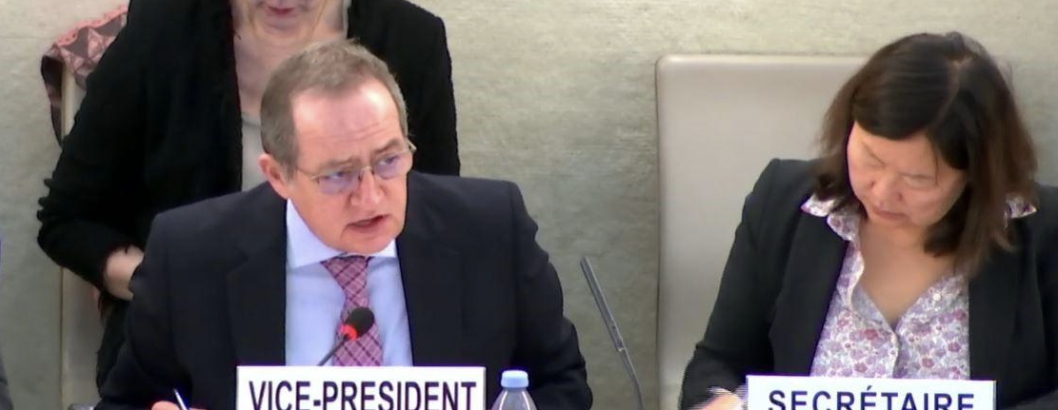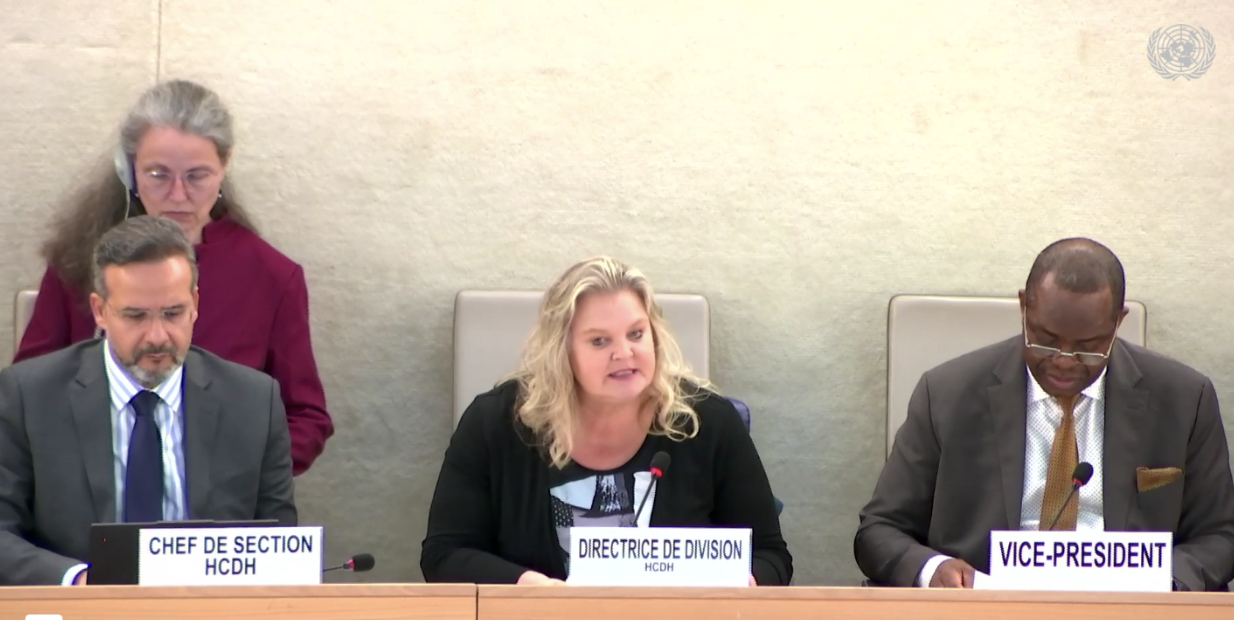Delivered on 27 June 2016
Agenda item 7: the Human rights situation in Palestine and other occupied Arab territories
Interactive dialogue with Special Rapporteur on contemporary forms of racism,racial discrimination, xenophobia and related intolerance
Joint statement submitted by International Organization for the Elimination of All Forms of Racial Discrimination (EAFORD) and Geneva International Centre for Justice (GICJ)
Delivered by Ms Anne Béatrice de Gressot
Full text of the statement:
This is a joint statement by EAFORD and Geneva International Centre for Justice.
We would like to thank the Special Rapporteur for his report. We are currently witnessing a massive and unprecedented migration crisis due to the proliferation of conflicts throughout the world.
Those people fleeing for their life and in search for a safer place to bring their children, escaped the hell of combat zones to come face to face with a widespread xenophobia. In a world where mobility is increasing, the fear for the foreigners becomes a common thing and a political argument for a few of our governments.
Last Friday, the United Kingdom voted out of the European Union through a referendum. One of the main cause of this so-called Brexit was the migration, suggesting it was a social and economic threat to the British citizens. Whereas a high concentration of migrants certainly poses a greater amount of financial pressure on certain hosting countries, this must not become a pretext for spreading dangerous xenophobic ideologies. The United Kingdom is not an isolated example in Europe. Indeed, our organizations are especially concerned by the rise of extremist ideological movements, taking form into radical political parties.
The recent terrorist attacks in Europe and the rising threat of terrorism have been used as a tool to diabolize Muslims Arabs. As stressed out by the Special Rapporteur, xenophobia is a multiform phenomenon and thus has the power to infiltrate every layer of our societies in very insidious ways. Despite the fact that the reasons behind xenophobia and its subsequent manifestations are not the same depending on the generation, we can still trace this behaviour back to a basic feeling of intolerance and hate.
Based on the conclusions of the Special Rapporteur in its report, we call upon the Human Rights Council to undertake a holistic approach to combat xenophobia, based on new educational programmes promoting the fundamental principles of tolerance and respect for ethnic, religious and cultural diversity in order to counter extremist ideologies while preserving and consolidating the values of democracy.








